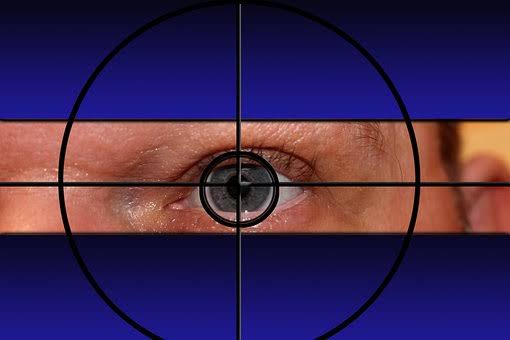Criminology is the scientific study of criminal behavior, causes, and prevention. This field of study has been around for centuries and has become increasingly important as crime rates continue to rise in many parts of the world. Studying criminology offers a range of benefits, including career opportunities and the ability to understand and contribute to the fight against crime. In this article, we will explore 10 reasons why studying criminology is beneficial.
Table of contents
- #1 Understanding Criminal Behavior
- #2 Developing Analytical and Critical Thinking Skills
- #3 Building a Career in Law Enforcement or Criminal Justice
- #4 Contributing to Society
- #5 Understanding the Criminal Justice System
- #6 Gaining Knowledge of Law and Legal Processes
- #7 Investigating Crimes and Solving Cases
- #8 Examining the Causes and Consequences of Crime
- #9 Formulating Effective Policies and Strategies:
- #10 Increasing Awareness of Social Injustice
- Conclusion
- Bibliography
#1 Understanding Criminal Behavior
One of the primary benefits of studying criminology is the opportunity to gain a deeper understanding of criminal behavior. This involves examining why individuals commit crimes and the factors that contribute to criminal behavior. By understanding the root causes of crime, individuals can work towards developing effective strategies to prevent and reduce crime rates.
#2 Developing Analytical and Critical Thinking Skills
Studying criminology requires individuals to develop strong analytical and critical thinking skills. Students are required to analyze complex data, evaluate evidence, and draw conclusions based on their findings. These skills are highly valued in many professions and can be applied in a range of fields.
#3 Building a Career in Law Enforcement or Criminal Justice
A degree in criminology can open doors to a range of career opportunities in law enforcement or criminal justice. Graduates can work in law enforcement agencies, correctional facilities, and other organizations that deal with crime prevention, investigation, and punishment. Some of the popular career options include police officers, probation officers, crime scene investigators, forensic psychologists, and criminologists.
#4 Contributing to Society
Studying criminology provides individuals with the opportunity to make a positive impact on society. Graduates can work towards reducing crime rates, preventing future crimes, and promoting justice and fairness for all. By contributing to society, individuals can make a real difference in the lives of others.
#5 Understanding the Criminal Justice System
Criminology is closely related to the criminal justice system, and studying criminology provides individuals with a better understanding of how the system works. This includes understanding the roles of law enforcement agencies, courts, and correctional facilities. By understanding the criminal justice system, individuals can work towards improving it and making it more effective.
#6 Gaining Knowledge of Law and Legal Processes
Criminology is closely linked to the legal system, and studying criminology provides individuals with a deep understanding of laws and legal processes. This includes understanding the various types of laws, legal procedures, and the roles of legal professionals. This knowledge is valuable in a range of professions and can help individuals make informed decisions in their personal and professional lives.
#7 Investigating Crimes and Solving Cases
Studying criminology provides individuals with the skills and knowledge needed to investigate crimes and solve cases. This includes examining evidence, analyzing data, and conducting interviews with witnesses and suspects. Individuals with these skills are highly valued in law enforcement agencies and other organizations that deal with crime prevention and investigation.
#8 Examining the Causes and Consequences of Crime
Criminology involves examining the causes and consequences of crime, including the social, economic, and cultural factors that contribute to criminal behavior. By understanding these factors, individuals can work towards developing effective strategies to prevent and reduce crime rates. This knowledge can also be applied in a range of professions, including social work, education, and public policy.
#9 Formulating Effective Policies and Strategies:
Studying criminology provides individuals with the skills and knowledge needed to formulate effective policies and strategies to prevent and reduce crime. This includes developing programs that address the root causes of crime, such as poverty, unemployment, and lack of education. Individuals with these skills are highly valued in government agencies, non-profit organizations, and other organizations that focus on crime prevention and social justice.
#10 Increasing Awareness of Social Injustice
Studying criminology provides individuals with a better understanding of the social injustices that contribute to criminal behavior. This includes understanding the impact of poverty, discrimination, and inequality on crime rates. By increasing awareness of these issues, individuals can work towards promoting social justice and equality for all.
Conclusion
Studying criminology offers a range of benefits, including gaining a deeper understanding of criminal behavior, developing analytical and critical thinking skills, building a career in law enforcement or criminal justice, contributing to society, understanding the criminal justice system, gaining knowledge of law and legal processes, investigating crimes and solving cases, examining the causes and consequences of crime, formulating effective policies and strategies, and increasing awareness of social injustice. Individuals with a degree in criminology are highly valued in a range of professions and can make a real difference in the lives of others.
Bibliography
- Akers, R. L., & Sellers, C. S. (2013). Criminological theories: Introduction, evaluation, and application. Oxford University Press.
- Bohm, R. M., & Vogel, R. E. (2011). Introduction to criminology: A text/reader. Sage Publications.
- Cohen, L. E., & Felson, M. (1979). Social change and crime rate trends: A routine activity approach. American sociological review, 44(4), 588-608.
- Miethe, T. D., & Meier, R. F. (1994). Crime and its social context: Toward an integrated theory of offenders, victims, and situations. State University of New York Press.
- Siegel, L. J. (2017). Criminology: The core. Cengage Learning.



 For all latest articles, follow on Google News
For all latest articles, follow on Google News